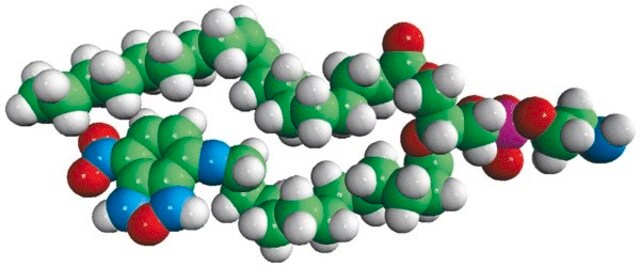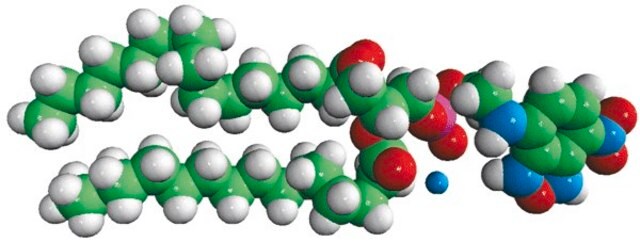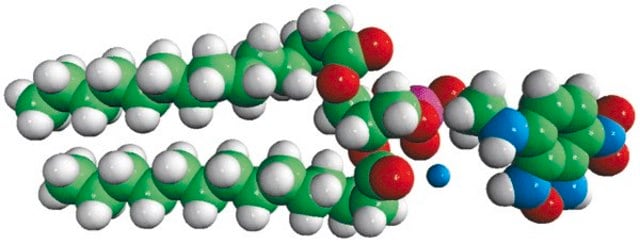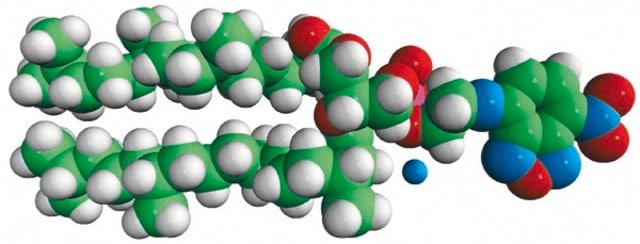810142C
Avanti
4ME 16:0 NBD PE (NBD-DPhPE)
1,2-diphytanoyl-sn-glycero-3-phosphoethanolamine-N-(7-nitro-2-1,3-benzoxadiazol-4-yl) (ammonium salt), chloroform
Sinónimos:
NBD-DPhPE
About This Item
Productos recomendados
assay
>99% (TLC)
form
liquid
packaging
pkg of 1 × 1 mL (810142C-1mg)
manufacturer/tradename
Avanti Research™ - A Croda Brand 810142C
concentration
1 mg/mL (810142C-1mg)
shipped in
dry ice
storage temp.
−20°C
General description
Application
Packaging
Legal Information
signalword
Danger
Hazard Classifications
Acute Tox. 3 Inhalation - Acute Tox. 4 Oral - Aquatic Chronic 3 - Carc. 2 - Eye Irrit. 2 - Repr. 2 - Skin Irrit. 2 - STOT RE 1 - STOT SE 3
target_organs
Central nervous system, Liver,Kidney
wgk_germany
WGK 3
Certificados de análisis (COA)
Busque Certificados de análisis (COA) introduciendo el número de lote del producto. Los números de lote se encuentran en la etiqueta del producto después de las palabras «Lot» o «Batch»
¿Ya tiene este producto?
Encuentre la documentación para los productos que ha comprado recientemente en la Biblioteca de documentos.
Nuestro equipo de científicos tiene experiencia en todas las áreas de investigación: Ciencias de la vida, Ciencia de los materiales, Síntesis química, Cromatografía, Analítica y muchas otras.
Póngase en contacto con el Servicio técnico










